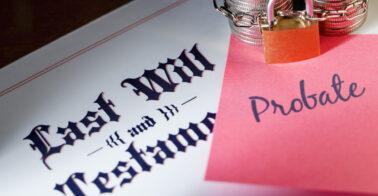Are Trustees Fiduciaries?


Yes! When a trust is created, the trustor (or grantor) names a trustee to administer the assets in accordance with their wishes. Trustees are fiduciaries—held to the highest duty of care in executing their responsibilities. Legal experts provide examples of the fiduciary responsibilities of trustees.
Understanding The Role of Trustee
Although it can be considered an honor to be entrusted with the administration of a trust, family members or friends who accept the role of trustee are not taking on ceremonial duties. As legal experts explain:
The Trustee has a fiduciary duty, which is the highest duty a person has to the beneficiary (sometimes the Trustor and other times the Trustor’s beneficiaries). The person must act with the utmost good faith, putting the Trustor’s interest before his or her own while managing the Trustor’s finances in accordance with the Estate (during their life) and/or administering the Trust (when the Trustor passes away).
Some examples of fiduciary responsibilities include, but are not limited to, taking possession of Trust property; collecting all dividends, cash, death benefits, income, and other payments due to the Trust as a result of decedent’s death; depositing those collections into a Trust account; keeping the Trust property insured if necessary; filing all tax returns and paying all taxes; and keeping a detailed account of all receipts and disbursements of the Trust.
Some things a Trustee is legally prevented from is using trust property for his or her own profit or benefit; obtaining any advantage over a beneficiary; taking part in a transaction against a beneficiary; favoring one beneficiary over another; or co-mingling his or her own property with the Trust property.
Trustee bonds can be helpful in protecting the interests of beneficiaries. Essentially, a trustee bond is a type of fiduciary bond that guarantees that the trust will be administered in accordance with the law. It is quick and easy to obtain a trustee bond from leading national provider: Colonial Surety Company. Just get a quote online, fill out the information, and enter a payment method. Print or e-file the bond instantly—from anywhere, even the law office. Trustee Bond Here.
Special Considerations
Unlike wills, trusts are private—they do not go through the public process of probate. There are many different kinds of trusts. For example, trusts can be set up to provide family or friends with the resources to care for us if we become incapacitated. It can also be helpful to set up a trust to care for loved ones with special needs. Education can help families in the face of rising tuition costs or even to secure the care of beloved pets.
Good To Know
Although they can be helpful, trusts are not always necessary. For many of us, a basic last will and testament ensures that our affairs are organized for loved ones. Legal experts remind us that most states now offer expedited probate processes based on the level of assets involved. This can be very useful, especially if the timing of beneficiaries inheriting our assets is important. Ultimately, whether you are putting a trust or will in place, be sure you are communicating your intentions with your family members and close friends. Legal experts stress that this is the most important way to avoid bad feelings and, worse, major disputes later.
Estate Law? Need a Partner?
When clients come to you with important and evolving considerations you don’t want to be distracted, right? That’s why lawyers across the country count on Colonial Surety.
Why waste time shuffling around to get bonds the old-fashioned way? Colonial’s direct, fully digital, user-friendly system reduces the time, hassle and expense typically associated with bonding. In addition to providing a full portfolio of court and fiduciary bonds directly to the general public, Colonial Surety Company offers The Partnership Account® for Attorneys. This free business service provides user-friendly client management dashboards, enabling attorneys to easily coordinate, view, complete and e-file the court and fiduciary bonds clients need. Increase your efficiency—and lower costs for clients. See for yourself today: The Partnership Account® for Attorneys.
Founded in 1930, Colonial Surety Company is a direct writer of surety bonds and insurance products. Colonial is rated “A Excellent” by A.M. Best Company, U.S. Treasury listed, and licensed for business everywhere in the USA.

